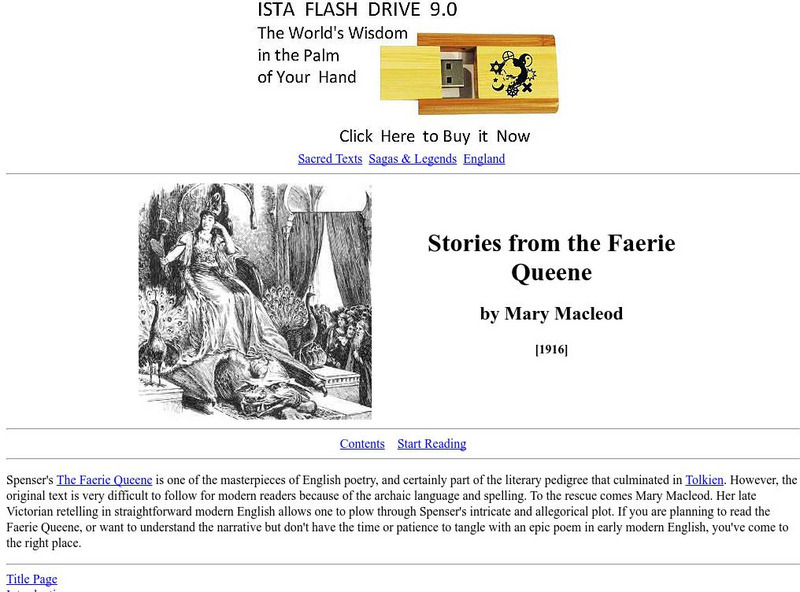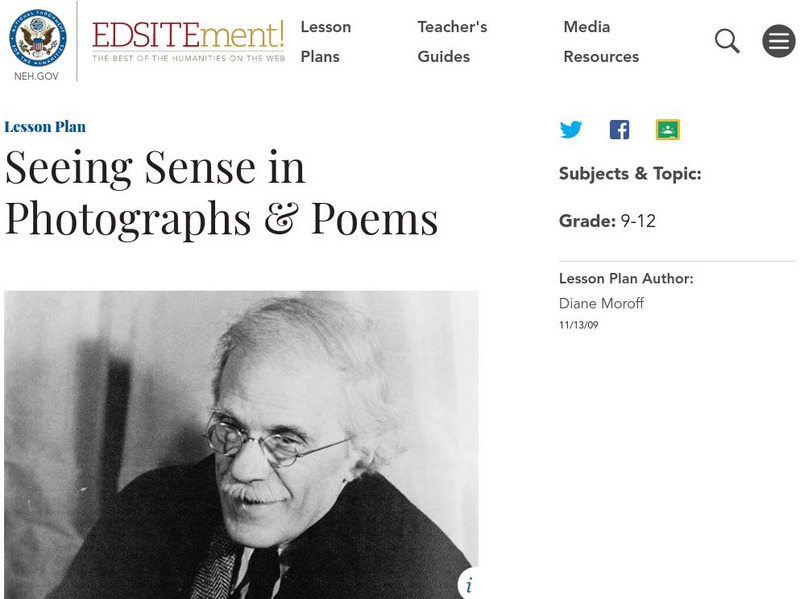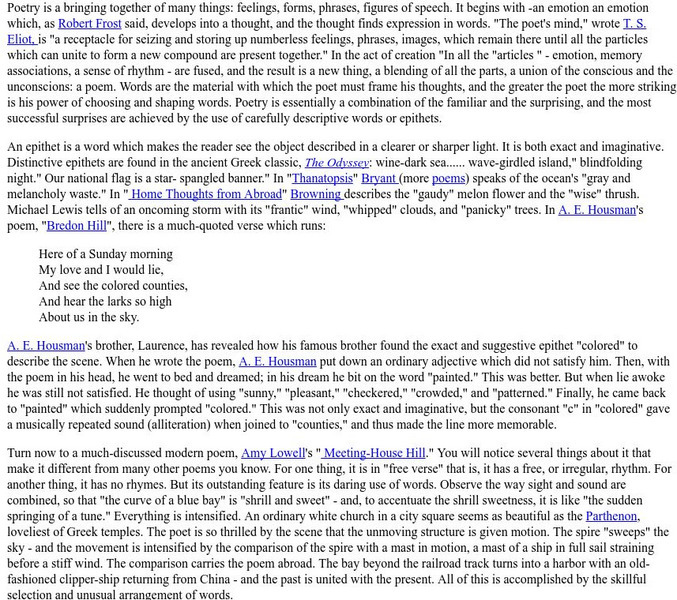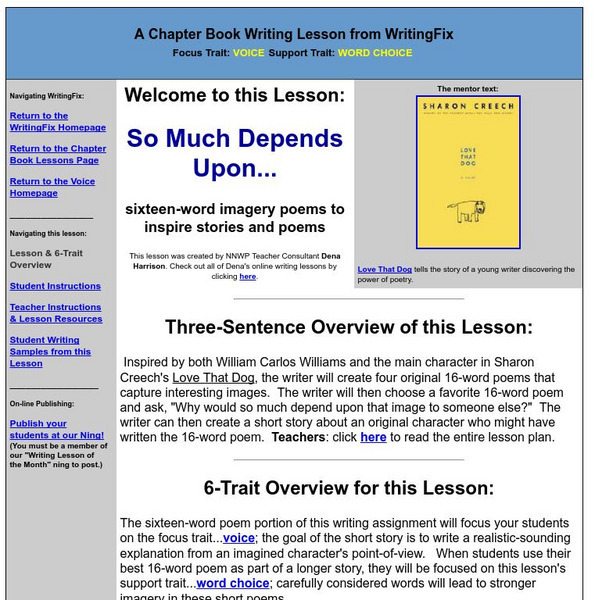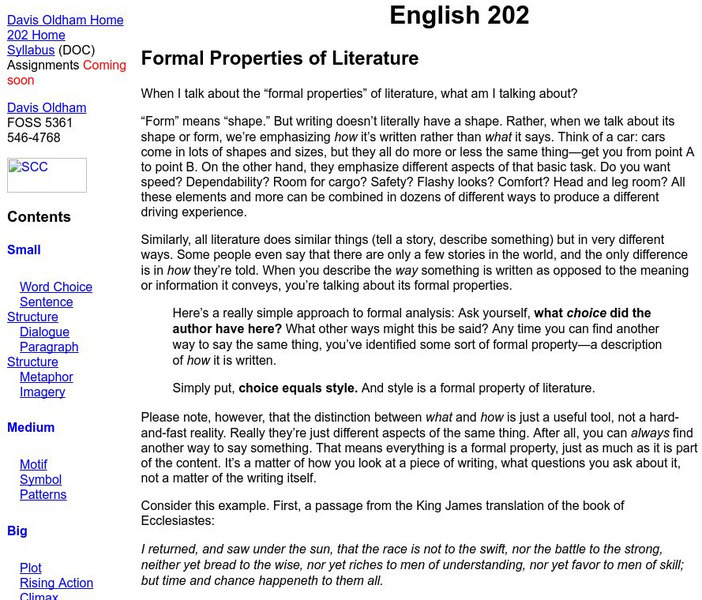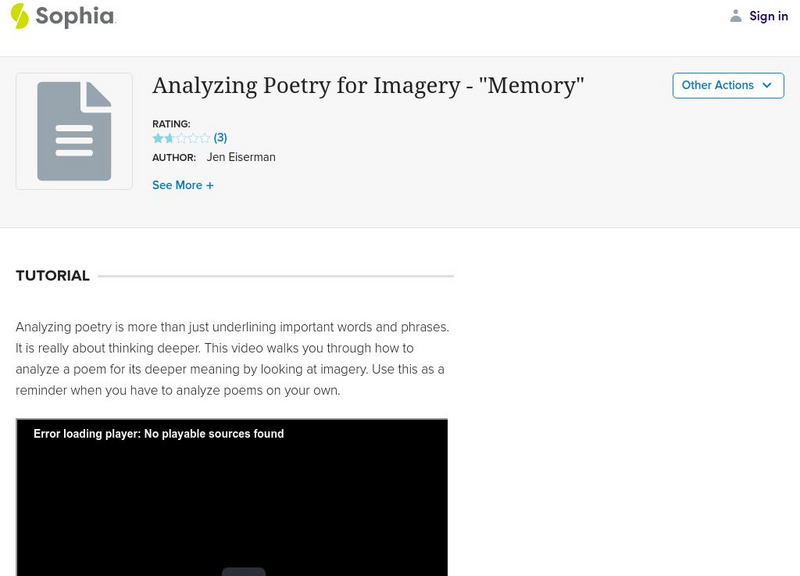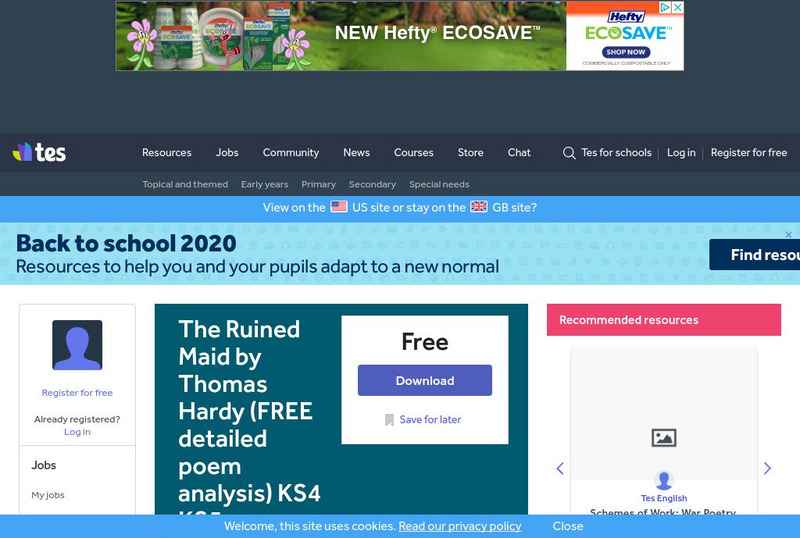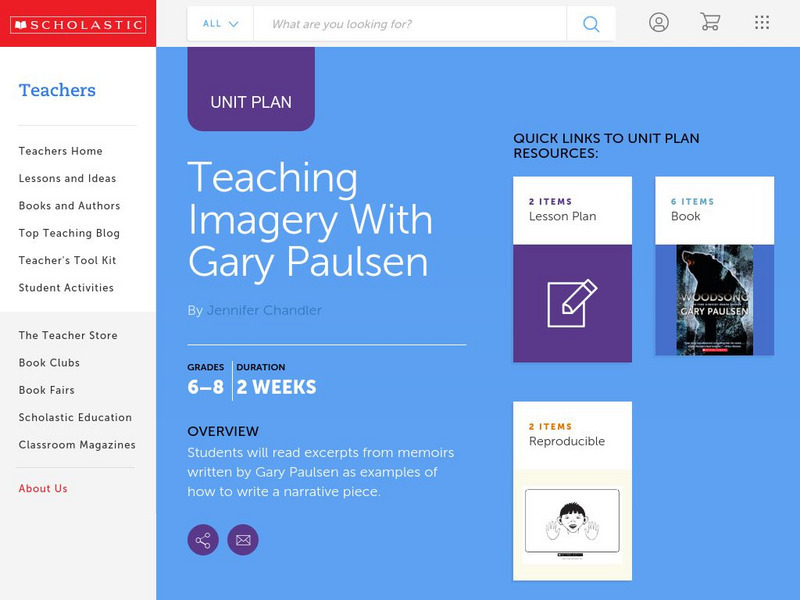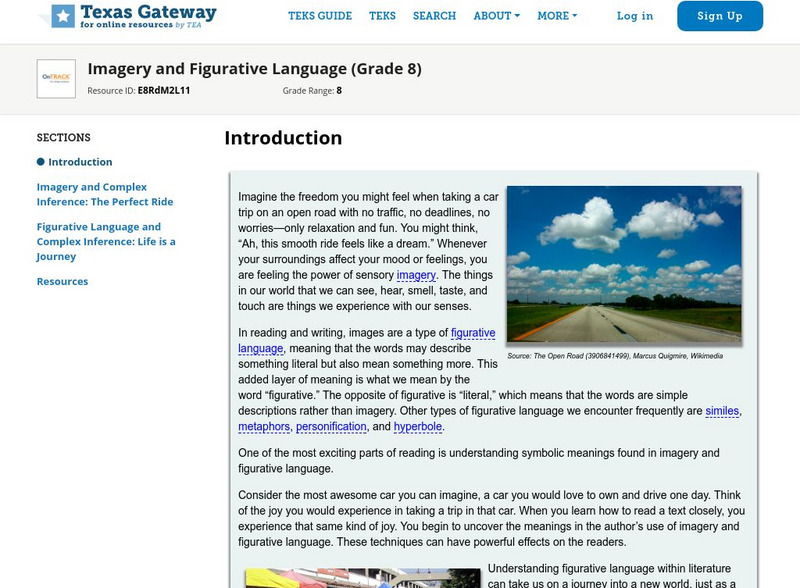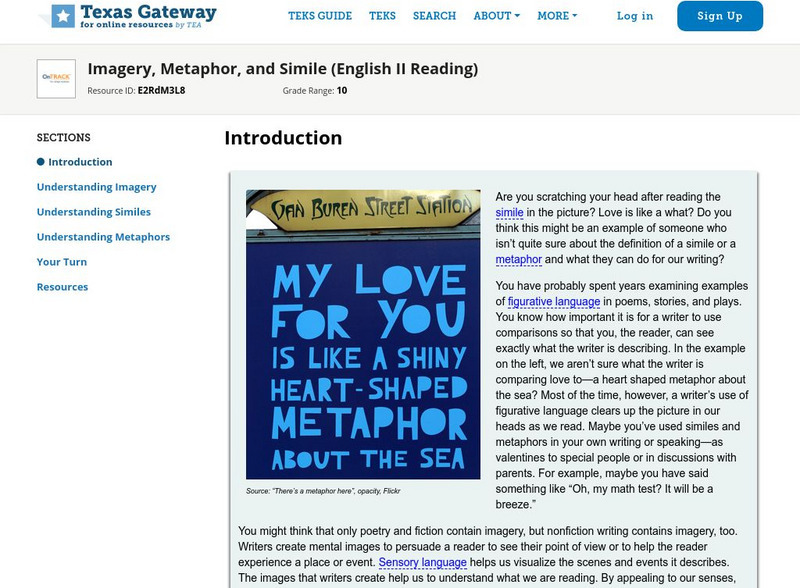PBS
Pbs Learning Media: Literary Elements and Techniques Collection
These animated shorts introduce or review literary elements and techniques like theme, setting, figurative language, characterization, and conflict. They can be used when students are just learning how to identify the most commonly used...
British Library
British Library: 'Goblin Market' by Christina Rossetti
In 'Goblin Market', Rossetti employs imagery to explore Victorian debates around sin and temptation. Students will explore these techniques and apply them to their own work.
British Library
British Library: Blake's 'The Tyger': A Close Reading
Through these teaching ideas, students are encouraged to explore William Blake's innovative approach to creating and displaying his poetry, developing their understanding of the multi-talented individual whose poems and artwork continue...
British Library
British Library: Discovering Literature: Chaucer's 'The Merchant's Tale': Marriage & Relationships
'The Merchant's Tale' can be viewed as one of the 'marriage' tales in Chaucer's "The Canterbury Tales". Students can use this series of activities to explore how Chaucer portrays marriage, men and women, and relationships through the...
Sacred Text Archive
"Stories From the Faerie Queene" by Mary Macleod
This is a Victorian era retelling of Edmund Spenser's "Faerie Queen." Useful for getting a grip on the plot, or for comparison of language.
Georgia Department of Education
Ga Virtual Learning: The Elements of Poetry [Pdf]
This is a 2-page PDF of a chart that lists eight elements of poetry, questions to ask concerning each element, and tips and explanations to aid the understanding of each element. RL.9-10.5 text structure effects
National Endowment for the Humanities
Neh: Edsit Ement: Seeing Sense in Photographs & Poems
In this lesson plan, students will consider Seeing Sense in Photographs & Poems. Worksheets and other supporting materials can be found under the Resources tab. They will learn to support their analyses with detailed description of...
Ted Nellen
Cyber English (By Ted Nellen): Epithet
This is a glossary entry for the term "Epithet" including definitions and examples from a number of poets.
Writing Fix
Writing Fix: So Much Depends Upon
For this lesson students will write a descriptive short story based upon 16-word imagery poems they have previously written.
Other
Mo Dept. Of Ed.: Analyzing and Evaluating Literary Works
Lesson plan designed for eleventh graders. Students analyze and evaluate a short story for elements of literary works such as theme, mood, word choice, imagery, tone, and main idea. Includes a student handout and a scoring guide. It...
Other
Increased Comprehension With the Use of Imagery
Designed for adult learners, this literacy lesson could easily be used in the high school or middle school classroom. Some handouts are included, but some material must be found in a newspaper or magazine.
Other
Shoreline Community College: Formal Properties of Literature
As students become more aware of text complexity, an understanding of the formal properties of literature becomes more important. This is an excellent examination of the kinds of choices writers make that change the way readers receive...
University of Victoria (Canada)
The U Vic Writer's Guide: General Literary Terms
The University of Victoria's Writer's Guide includes an extensive list of literary and rhetorical terms. List can be displayed alphabetically.
Writing Fix
Writing Fix: The Poetry Lesson: Color Personification Poems
For this lesson, students will choose a color and write a poem. Students will use personification and speak from the point of view of the color. Then students will use watercolor paints to exemplify their poem about a color.
Sophia Learning
Sophia: Analyzing Poetry for Imagery "Memory"
This video lesson focuses on analyzing imagery using the poem "Memory" by Jen Eiserman. [11:17]
TES Global
Tes: The Ruined Maid by Thomas Hardy
[Free Registration/Login Required] This Power Point presentation provides a detailed poetic analysis of Thomas Hardy's poem titled 'The Ruined Maid.' Close analysis of the poem's language and imagery are featured.
Scholastic
Scholastic: Teaching Imagery With Gary Paulsen
Uses excerpts from Gary Paulsen's memoirs as examples of imagery in personal narratives. Includes detailed lessons and PDF files of handouts and evaulation rubrics.
ReadWriteThink
Read Write Think: Teaching Poetry Through Riddles
Excellent teaching resource that attempts to teach poetic concepts to middle schoolers by using riddles. Discusses riddles' use of metaphor, simile, and imagery, and relates these concepts to the students' understanding of poetry....
Texas Education Agency
Texas Gateway: Imagery and Figurative Language (Grade 8)
Make complex inferences and use textual evidence such as imagery and figurative language to support understanding.
Texas Education Agency
Texas Gateway: Close Reading of Poetry: Practice 2 (English I Reading)
Read carefully in order to identify allusion, imagery, metaphor, and symbolism and to evaluate their impact on the meaning of a text. RL.9-10.9 alllusions to other works.
Texas Education Agency
Texas Gateway: Imagery: Simile and Metaphor (English I Reading)
[Accessible by TX Educators. Free Registration/Login Required] Identify the similes and metaphors in a text and evaluate their importance to the meaning of the text. RL.9-10.5 text structure effects
Texas Education Agency
Texas Gateway: Imagery, Metaphor, and Simile (English Ii Reading)
Evaluate the role of imagery, metaphor, and simile in literary nonfiction such as speeches and essays.
Texas Education Agency
Texas Gateway: Close Reading of Poetry: Practice 3 (English Ii Reading)
Read carefully in order to identify allusion, imagery, metaphor, and symbolism, and evaluate their impact on the meaning of a text.
Shmoop University
Shmoop: Julius Caesar Analysis: Literary Devices in Julius Caesar
A discussion of the literary devices used by Shakespeare in The Tragedy of Julius Caesar. Each device is linked to additional pages with more detailed information and examples.

